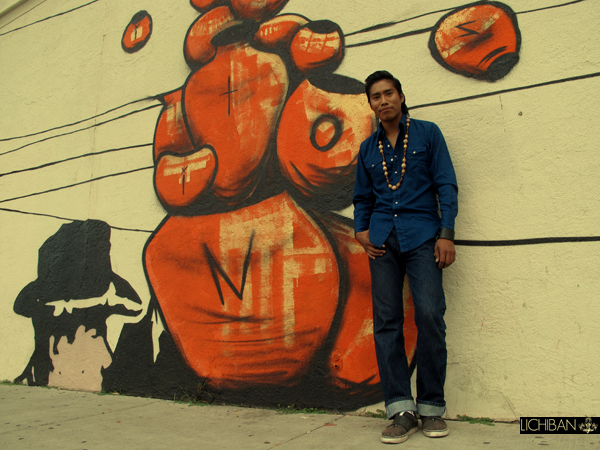
By Catie Beach
Transcript Correspondent
Graffiti artist and indigenous rights activist Jaque Fragua came to Ohio Wesleyan last Tuesday evening to share how he paints the streets in an attempt to spark political change.
“Jaque Fragua: Public Art and the Indigenous Sovereignty Movement” was a part of Citizens of the World (COW) House’s annual programming series “Celebrating Our World Week,” in honor of on-campus and global diversity.
The lecture, held in the Benes Rooms, was one of several diversity-themed events, including the screening of “Black Gold,” a film about fair trade coffee, t-shirt decorating on the JayWalk and an “around the world” picnic.
COW House’s moderator, senior Ashley Maderas, got the idea to bring Fragua to campus when watching a TED Talk featuring photojournalist Aaron Huey.
His case study of the U.S. government’s devastating violations of the 1868 Fort Laramie Treaty inspired him to organize Native artists, advocacy groups and allies to start the art-advocacy organization Honor the Treaties, of which Fragua is a member.
An Artist’s Inspiration
A Jemez Pueblo hailing from New Mexico, Fragua’s artwork speaks about human rights abuses occurring on reservation lands, as well as the historic exploitation of his people’s culture.
“When one is oppressed, you naturally start pulling apart the layers to see what’s wrong,” Fragua said in his lecture. “When you get to the core you see it’s systematic.”
Some of his vibrant murals are abstract in subject matter, and reflect his voice as a Native artist working to reclaim ancient symbology, stolen and exploited by outside cultures for commercial use.
Other murals raise awareness of the systematic marginalization of Native peoples living on reservations. He references the increased abuse of Native women, mass shortage of clean water and government exploitation of sacred lands.
Maderas hopes her peers recognize the dual responsibility of celebrating diversity through Fragua’s message.
“I don’t just want people to celebrate the differences of Jaque’s culture,” she said.
“I want people to get angry. I want people to realize that there are some groups we don’t talk about. Some people don’t recognize that the government is at fault.”
The mission of “Celebrating Our World Week” urges students to simultaneously celebrate cultural differences, and support those trying to reconcile inequality. Fragua’s work and philosophy exemplify his mission.
“In Pueblo culture, balance is at the core of everything,” he said. “It’s about the dichotomy. I see art that way. I see life that way.”